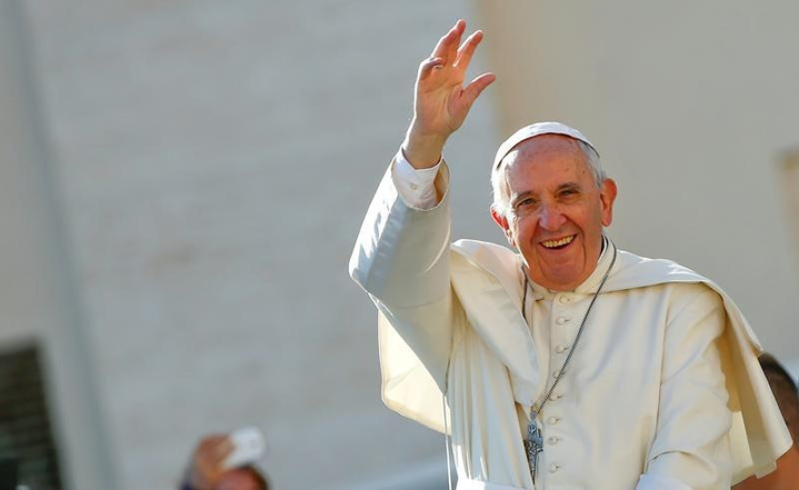
Monday, October 31, Pope Francis visited Sweden on the 500th anniversary of the Reformation. He did not attend in support of the Reformation itself Martin Luther, though he did have plenty to say in favor of Doctor Luther's courage and role in part towards restoring the sacred view of Scripture for peoples and generations to come. Rather, his motive was one more of humility and ecumenical respect, urging Christ's followers to "look with love and honesty at our past, recognizing error and seeking forgiveness."
With profound wisdom, he renounced the "corruption in the church, worldliness, attachment to money and power," both in the sixteenth century and into today.
The specific purpose of the ecumenical meeting, particularly between Lutherans and Roman Catholics, was to potentially collaborate, across denomination and sect, in the sharing of the Eucharist:
"With gratitude we acknowledge that the Reformation helped give greater centrality to sacred Scripture in the church's life," "We experience the pain of those who share their whole lives, but cannot share God's redeeming presence at the Eucharistic table...we long for this wound in the body of Christ to be healed. This is the goal of our ecumenical endeavors, which we wish to advance, also by renewing our commitment to theological dialogue."
While Martin Luther and the Church of Rome disagreed on a number of things---indulgences and purgatory, for instance, Protestants and Catholics to this day agree on fundamental issues such as salvation by grace, the infallibility of Scripture, and original sin. Doubtless, some thought Pope Francis' act unexpected and out of the ordinary. Primarily perhaps because of the fact of his own background in the Jesuit Order, which many believe to be the birthing place of the Counter-Reformation---a church landmark which commenced in order to refute or explain those disputes---the pope's act seemed, indeed, extraordinary. However, his example is one that any person from any denomination can only praise and desire to emulate.
In 1517, Martin Luther, former monk, nailed his famous Ninety-Five Thesis to Chapel Door. Since then, swelling passions, misunderstandings, and differences have breached a divide in the Western Bride of Christ. It was concerning this event that the pope wished to mend, however possible. In an attitude of graciousness which should govern every Christian, he asserted, "If we don't do it, we Christians hurt ourselves by division." Pope Francis has expressed continued desire towards ecumenical advances in Christian love and unity.






